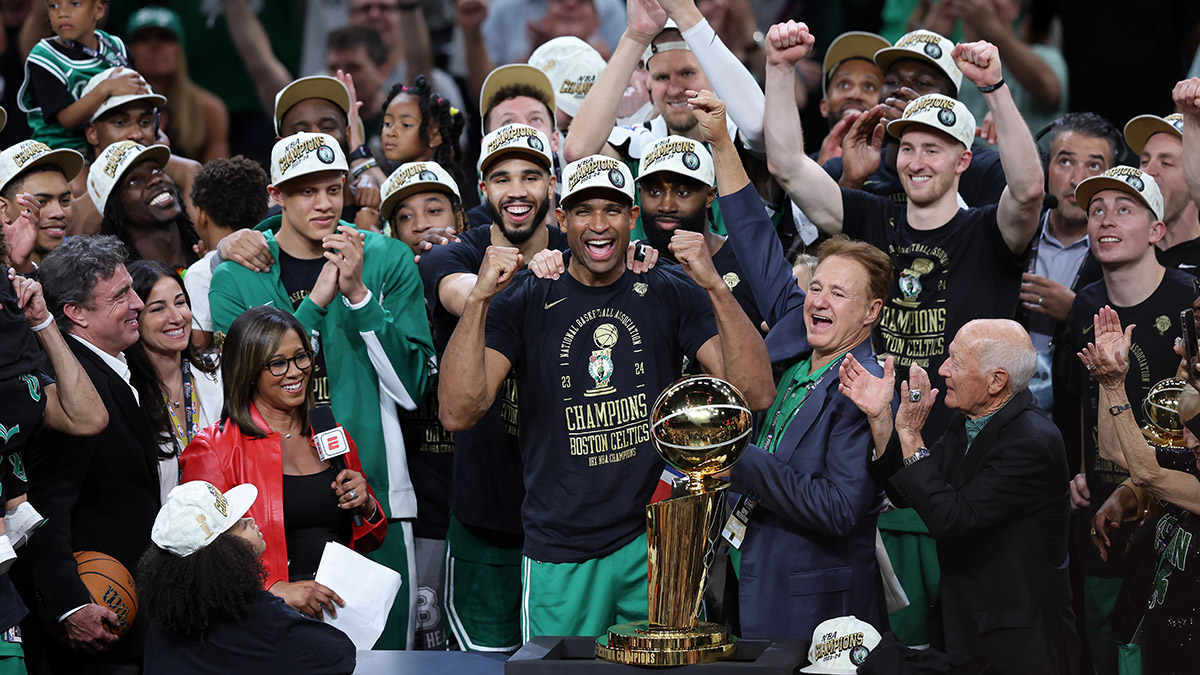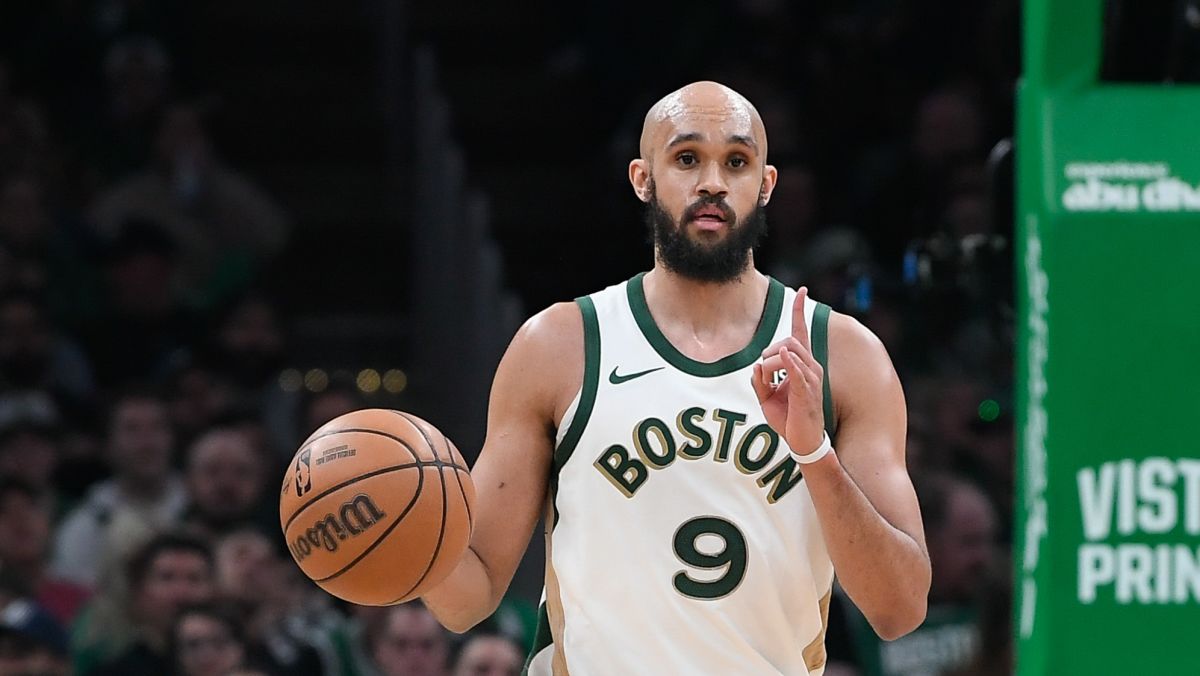BOSTON — When it came time to figure who would present the late Chuck Cooper to the Basketball Hall of Fame, his son Chuck Cooper III had a few — OK, quite a few — folks in mind.
So he did what made the most sense … he asked all 10 possible presenters.
And they all accepted, which will make the former Celtic's induction into the Naismith Memorial Basketball Hall of Fame, literally a big deal.
But their willingness to do so speaks to Cooper’s impact on the NBA, as the first black player drafted by an NBA team, in 1950.
“This is a tremendous honor,” Chuck Cooper III told NBC Sports Boston’s A. Sherrod Blakely. “It means the world to me and my family. Not just for me and my family, but all the supporters of my father’s legacy. That his sacrifices, contributions to the great game of basketball are being recognized at the highest level.”
Cooper, selected by Boston in the second round and 14th overall, joins a long and lengthy list of players and coaches into the Hall of Fame who were part of the Boston Celtics family.
But the impact of Cooper’s NBA career has had a rippling effect that we still in some sense today.
Boston Celtics
He was the first of three black players drafted in 1950, who made their debut that year with Cooper being the first to be selected.
His son wasn’t sure if his father would ever be recognized by the Hall of Fame for his contributions as a pioneer in leading the diversity efforts of the NBA at a time when segregation was so deeply woven into the fabric of American society.
One of Chuck Cooper’s closest friends on the team was fellow Hall of Famer Bob Cousy.
“Chuck and I roomed together,” Cousy told NBC Sports Boston.
In addition to being teammates, the two also hung out together socially while in Boston. One of their favorite spots was the Storyville nightclub where they would catch some of the top jazz artists of that time like Errol Garner.
“We bonded, become friends and remained so for years,” Cousy said.
That friendship was tested, more so on the road and in the south than anywhere else.
Cousy recalled a trip to Raleigh, N.C. in which the hotel the Celtics were staying at, would not allow Cooper to stay there.
“He wanted to raise hell,” Cousy recalled.
Cousy and Cooper wound up getting an overnight train back to Boston. The night was pretty uneventful for them as they drank beer while waiting for their train to come. But before the train’s arrival, the two or so hours of drinking left both men needing to take a trip to the bathroom.
But like so many things in the segregated south, it wasn’t that easy.
There was one bathroom with a sign that read, “colored” and another bathroom with signage for whites only.
“I teared up,” Cousy recalled. “By now he and I, we’re pretty good friends. I was ashamed to be white. I didn’t know how to explain it; even now, I get emotional thinking about it. How do you feel? We’re good friends and run into this kind of overt racism; it’s unexplainable. But I came up with a solution.”
Cousy added, “End of the platform, nobody around … and we peed together so it was a Rosa Parks moment that we couldn’t talk about. It was our response to Jim Crow in those days.”
And while he has been praised for breaking the NBA’s color barrier, it has received minimal fanfare compared to Jackie Robinson, who became the first black player to break into Major League Baseball in 1947.
The year Cooper was drafted by the Celtics, there were two other black players — Earl Lloyd and Nathaniel “Sweetwater” Clifton — who were also selected by Washington and New York, respectively.
“I wasn’t alone,” Cooper said at the time in an interview with Jet magazine. “I didn’t have to take all the race-baiting and heat on my shoulders like Jackie Robinson. Besides, any black coming after Jackie, in any sport, had it easy compared to the turmoil he lived through.”
But just as Jackie Robinson changed the game of baseball forever when it came to integration, Cooper had a similar impact on the NBA.
That said, his induction into the Hall of Fame was far from a given.
“Every year that goes by you say, ‘is this gonna happen?’” Cooper III said. “When Earl went in, he recognized my dad and Sweetwater (Clifton). And when Sweetwater got in … I really thought my father might get in.”
Click here to download the new MyTeams App by NBC Sports! Receive comprehensive coverage of your teams and stream the Celtics easily on your device.


